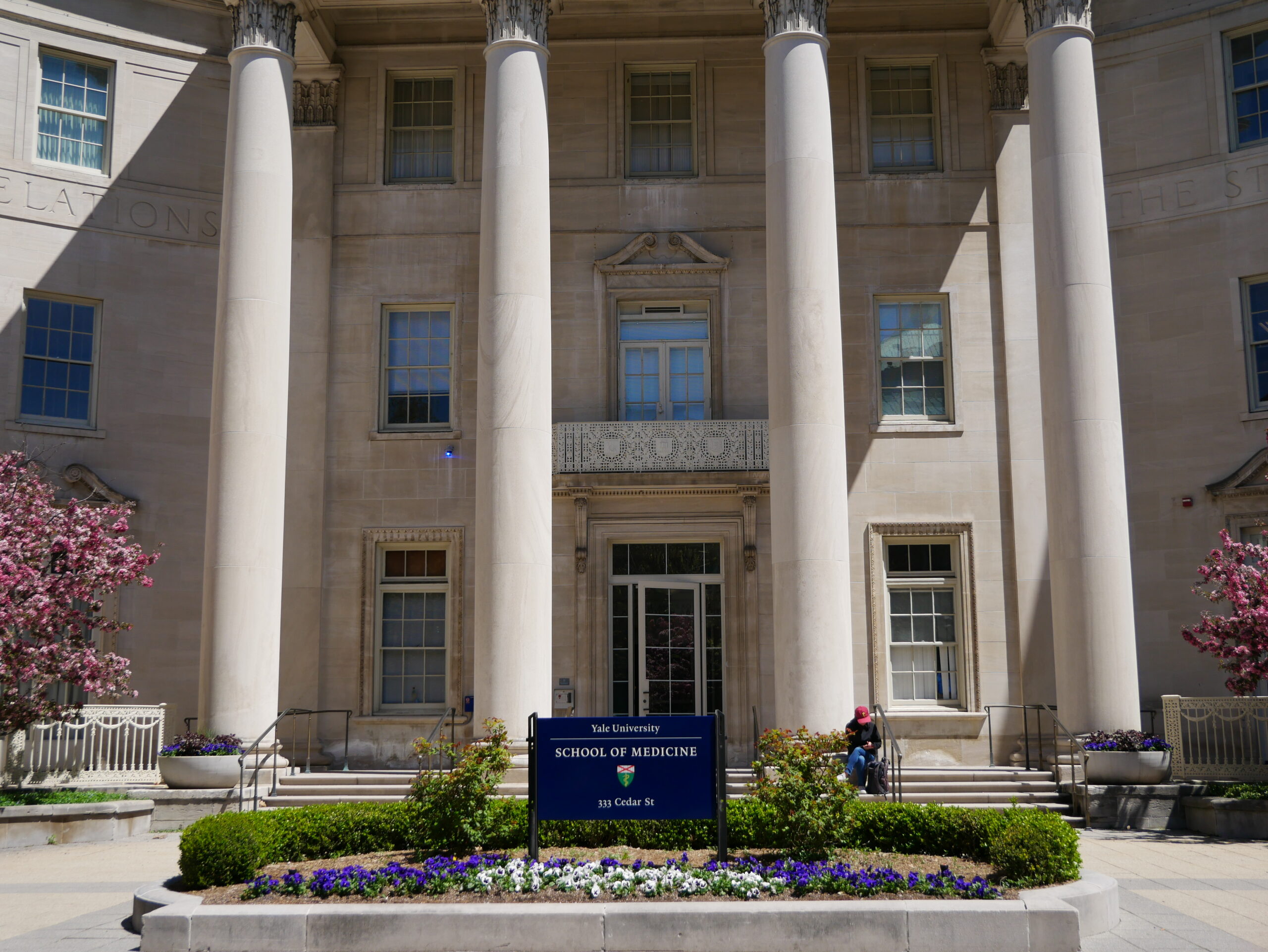The power of language: myriad of benefits of multilingualism
The News talked to an adjunct professor of linguistics and students to learn about cognitive, academic and social aspects of bilingualism.

YuLin Zhen, Photography Editor
Yale’s commitment to language learning is reflected in the distributional requirements — students must gain proficiency in a second language to graduate.
Language significantly shapes our thought processes and how we interact with one another. According to Yale experts, learning a second language increases cognitive capacities, makes one more culturally aware, expands perspective and broadens communication abilities.
“There are numerous practical benefits [to being bilingual],” Fernando Rubio, director of the Yale Center for Language Study and linguistics professor, said. “Bilingual individuals often possess soft skills that are highly valued by employers, such as adaptability, creativity, teamwork, communication skills, cross-cultural communication, empathy, problem-solving and critical thinking.”
Although it is often taken for granted, speaking is a complex cognitive process. In order to speak any language, the brain needs to use both long-term and working memory processes, engage attention as well as use motor control and abide by social norms, according to Maria Teresa Borneo GRD ’28, who is pursuing a doctorate in linguistics.
Borneo’s research at Yale’s Language & Brain Lab focuses on understanding the mechanisms by which language users combine different kinds of information, linguistic and nonlinguistic, to convey meaning.
“Research on the field [of bilingualism] has shown that the two language systems seem to be activated at all times, and that they affect each other, as well as affecting language processing in real-time,” Borneo said. “One example of this is code-switching, which involves going back and forth between languages.”
According to Rubio, when one can speak two languages, cognitive functions, such as memory processes, are enhanced. Thus, experts say that being bilingual can delay the onset of memory-related disorders, such as Alzheimer’s or dementia.
However, Rubio said these benefits are tied to using multiple languages consistently, not just memorizing vocabulary, grammar rules or completing a Duolingo streak. A true bilingual has the language embedded into their thinking and a part of their cognitive process.
However, it’s important to remember that it takes time and dedication to master a language.
“Yale is one of only a handful of institutions in the country in which the language requirement is not simply a box to check, but really an opportunity to develop a set of skills that have many intellectual and practical advantages,” Rubio said.
The Center for Language Study offers over 50 languages, including American Sign Language and classical languages. Students have the option to start a language from scratch, be placed into a certain language level or join the heritage track, meaning they work on improving their native language. For further cultural immersion, Yale also allows certain study abroad programs to count towards fulfilling the language requirement.
Alongside the cognitive benefits that these programs grant individuals, bilingualism impacts students’ academic experiences.
“In math, I subconsciously talk or think in French,” international student Milo de Guillenchmidt ’28 told the News. “Also, the approach to the discipline is different. In the French system, you have to justify everything you’re doing, whilst here you don’t. So it’s just adapting to different sets of [academic] requirements.”
There are various cultural differences in how subjects are taught across the globe and understood in other languages. For example, Europe uses a comma instead of a decimal point in math.
Understanding these cultural variations is an added benefit of bilingualism and provides a deeper understanding of the world and people around us.
Furthermore, to access all these benefits, one does not have to be bilingual from a young age.
“There isn’t such a thing as a “real” or a “better” bilingual,” Borneo told the News.
Even if one was not born into a family with a second language, the myriad of benefits from bilingualism can be accessed by learning a language at any point in life.
The Center for Language Study is located at 370 Temple St.







